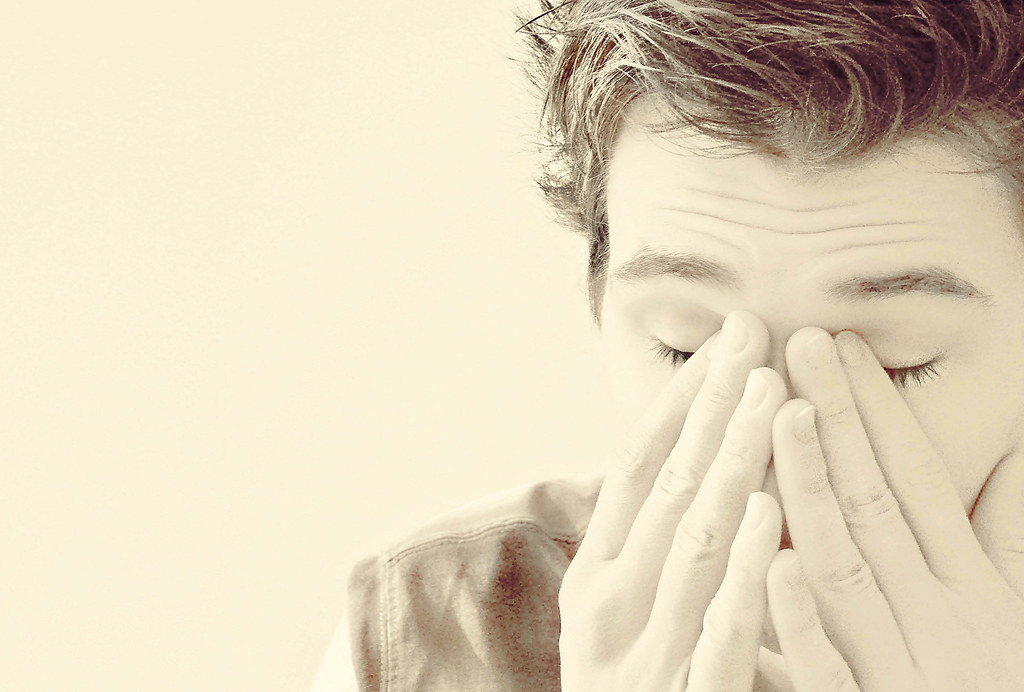On the Internet, you can often see memes and cartoons of a modern person. He always has a phone in his hands. Entertainment shows are also not far behind and put on scenes in which they tell that people are ready to engage in a real battle if their smartphone is taken away from them. But is such a reaction so ridiculous?
Fear of being left without a phone or how to defeat nomophobia
It turns out that the fear of being left without a phone has its own name – nomophobia.
What is nomophobia
Nomophobia is nothing more than fear and anxiety from the mere thought that a person will be left without a mobile phone. Psychologists did not philosophize and took the first letters from the phrase no mobile phone phobia.
A person with such a disease is in constant anxiety that his phone may be accidentally discharged, it will be stolen, he will leave it somewhere and will not remember – where exactly, the money will end in the account, etc. However, it also happens that the gadget may be in another room, and the person is already beginning to experience:
- loss of orientation in space;
- fast heartbeat;
- increased sweating;
- trembling in the body;
- difficulty breathing;
- panic and even panic attacks;
- anxiety.
All this suggests that he is prone to nomophobia. The term was first coined in 2008. Sociologists conducted a survey and found out that more than 50% of Britons surveyed are worried if they cannot use their phone. 10 years later, in 2018, nomophobia was voted the word of the year by the Cambridge Dictionary.
Research has been carried out from 2008 to the present day. Some scholars have even taken the initiative to include nomophobia in the American Psychiatric Association’s Diagnostic and Statistical Manual of Mental Disorders. However, the matter did not go further than the idea, but after all, the problem of mankind has not gone away from this, has not removed itself.
Not so long ago, a sociological survey was conducted among students and it turned out that 25% of the respondents were sick with nomophobia, about 40% of students were at risk. Experts rightfully call nomophobia “possibly the biggest non-narcotic addiction of the 21st century.”
The danger of nomophobia
The symptomatology of nomophobia itself is rather unpleasant. This mild addiction can cause increased stress levels. Anxiety can be confidently compared to the anxiety that a person experiences when getting married or visiting the dentist. This condition becomes permanent, stress acquires the status of a long-term one, and this does not bring absolutely any benefit to either mental well-being or physical.
In addition, nomophobia has a negative impact on overall life satisfaction and self-esteem. The disease introduces a person into a state of loneliness, which he feels especially during periods when it is not possible to write an SMS or receive an answer from someone.
Also, anxiety and anxiety become an obstacle to achievements in real life. This happens for one reason – people regularly “sit” on the phone, are distracted by it. Scientists said that students who do not have smartphone addiction receive high marks. Addicts study very poorly, academic performance tends to zero.
If people are susceptible to this disorder, then it is extremely difficult for them to restrain themselves so as not to spy on a smartphone. This can happen even at the peak of life, for example, in the midst of a quarrel, at an interview for an important position, etc.
Nomophobia becomes an obstacle to building normal relationships with both a partner and friends. Few people may like it if the interlocutor is constantly on the phone and hears nothing.
In addition, it has already been proven that telephone addiction provokes insomnia, significantly worsens the quality of sleep, makes it anxious and short, and even depression may well develop.
“Target audience” of nomophobia
The scary thing is that absolutely anyone can be affected by smartphone addiction. But if research is to be believed, some are more susceptible and at high risk of becoming addicted. Factors such as:
- age – young people between the ages of 14 and 20 are at risk;
- gender – it turns out that men were previously predisposed to nomophobia, but everything has changed and today women are at risk, they spend more time on “gatherings” in social networks and talking with friends;
- phone model – the owners of the latest telephone developments are more susceptible to nomophobia, unlike those who have push-button phones, everything is simple here, the latter do not have such a wide range of possibilities;
- the presence of other disorders – if a person is prone, for example, to panic attacks, then he is more prone to nomophobia.
How to know if you are susceptible to nomophobia
In order to get ahead of whether you have a phone addiction, you need to answer simple questions with the same simple answers – “no” or “yes”. The more positive answers you have, the higher your susceptibility to nomophobia.
- After waking up, I immediately check my smartphone.
- I also check my phone before bed.
- If I wake up in the middle of the night, be sure to check my phone.
- My phone is always on, I don’t turn it on in Airplane mode, even if I just need to.
- If I see a smartphone charge level at around 30%, I panic.
- If I left the house and forgot my smartphone, I will definitely come back, even if I left for a while or I am near the house (for example, I take out trash or buy bread).
- All my communication is on my smartphone, if I make appointments, I still constantly check my phone.
- My phone is always with me. I’m not comfortable in the bathroom without him.
- I reply to SMS immediately. If there is a pause, I’m wildly nervous.
- Even if I took my smartphone to check my mail, I will hang in it for a long time. I can forget about all plans.
- I interrupt any lesson in order to check my phone, it is always with me – I watch a movie, train, meet with a friend.
- If the Internet disappears, I have a panic, everything falls out of hand, I can not think of anything else.
How to overcome nomophobia
You can learn how to deal with phone addiction. It is important to approach the issue with full responsibility and understand how the problem worsens.
Analyze your fears
You need to determine what exactly scares you. After that, you need to think about how to help yourself and reduce this fear. For example, if you are afraid that it will be stolen, consider how to carry your smartphone so that it is safe.
Have conversations with yourself
Modern disorders are closely intertwined with phone addiction, such as an obsessive fear that you will miss something important and phantom vibration syndrome (it seems that the device vibrates constantly).
The realization that there is not so much important on the phone helps to fight.
Refusal from the phone
You do not need to throw it away and move smoothly into the stone age. Get rid of the gadget where appropriate. Move it away from the bed in which you sleep, turn off notifications from everyone – leave only those that really matter to you.
Get rid of apps
Delete in your device all those applications on which you usually “stick”. Arrange for yourself “unloading” days from the smartphone, designate the areas in the apartment where it is absolutely impossible to use it.






